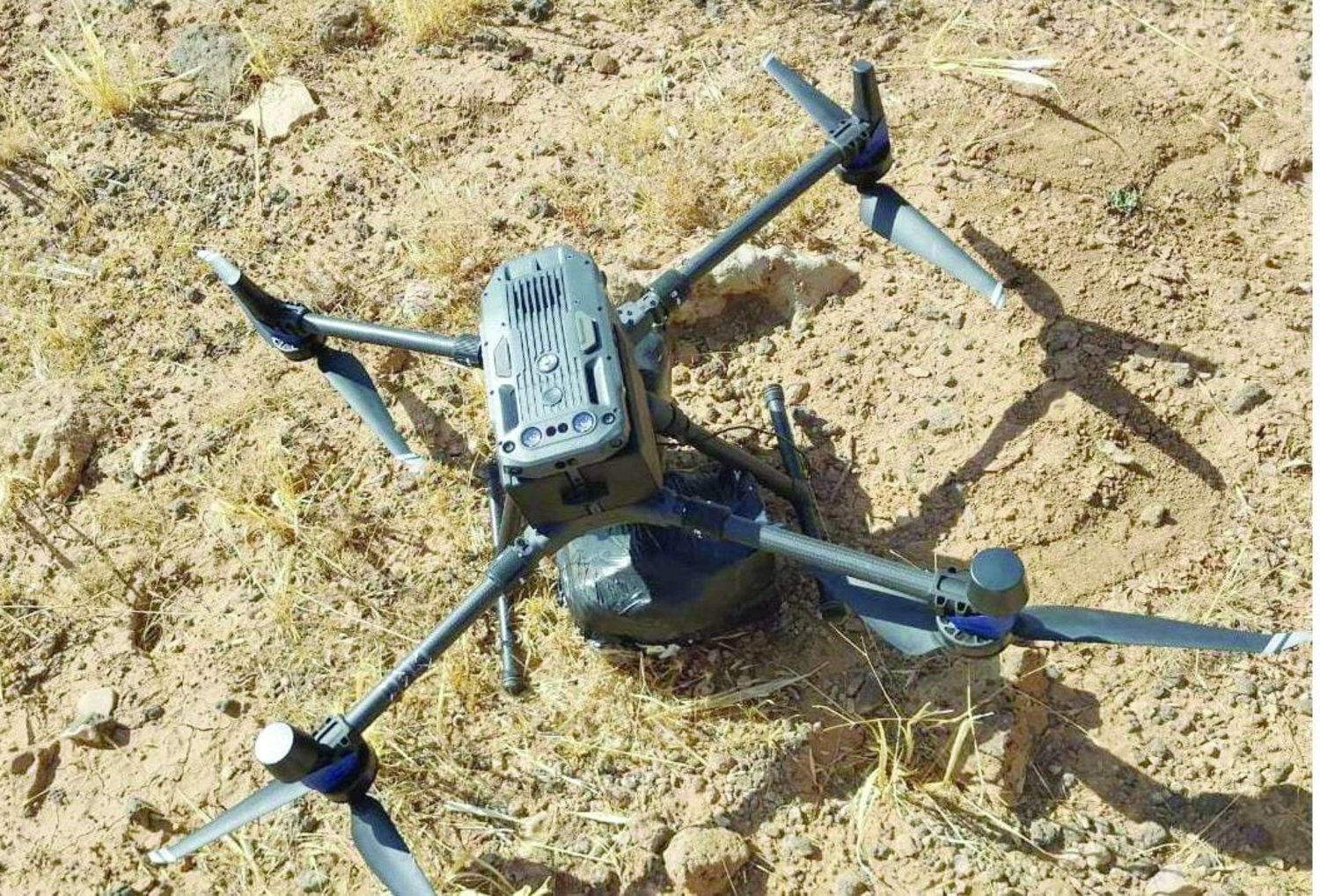
Today, the Jordanian army announced that it has successfully intercepted and downed a drone originating from the Assad-regime controlled southern Syria. This marks the third such incident this month alone. According to a statement from Jordanian security services, Border Guard forces, in collaboration with the Anti-Narcotics Department and military security agencies, detected an unauthorized UAV attempting to breach the Syrian-Jordanian border. The UAV was promptly intercepted and neutralized within Jordanian territory.
Despite assurances given by Assad to both Jordan and Gulf states, promising to halt the trafficking of Captagon as a prerequisite for his reintegration into the Arab League and for the normalization process, the regime’s involvement in the narcotics trade continues to thrive. In fact, officials within Jordan have expressed concern that these smuggling activities have evolved into more “sophisticated” operations, frequently utilizing drones and often with the assistance of armed factions.
Over the past few months, the Assad regime, in collaboration with Iran and Hezbollah, has not only sustained but intensified their engagement in the drug trade within southern Syria. In parallel, there has been an expansion into other criminal enterprises, including the smuggling of hashish and methamphetamine alongside Captagon. Alarmingly, Jordanian security forces have increasingly intercepted caches of weapons and even explosives, underscoring the gravity of the situation.
Amer Al Sabaileh, a prominent Jordanian journalist, commented in The Jordan Times that despite the hopes of mitigating the illegal networks through renewed political engagement with Syria, the rampant narcotrafficking continues unabated. Haid Haid, a Syrian analyst affiliated with Chatham House’s MENA program, notes the Assad regime’s apparent lack of earnest efforts to counter the drug trade, despite earlier pledges during its reentry into the Arab sphere. Haid attributes much of the disruption in trafficking to internal rivalries among competing drug lords or to local individuals, including former revolutionaries, who are taking it upon themselves to combat the narcotics industry in their regions.
Recent incidents further highlight the severity of the situation. On July 24, the Jordanian army intercepted a drone transporting two kilograms of crystal methamphetamine across the northern border. Subsequently, on August 13, another drone carrying crystal meth was downed within Jordanian territory. On August 16, Jordan’s military intercepted a drone laden with TNT explosives attempting to breach its airspace from Syria. On August 20, during an anti-drug operation along the Syrian border, Jordanian border forces engaged in a skirmish with several smugglers, resulting in injuries. Today, the military successfully neutralized yet another drug-laden drone.








